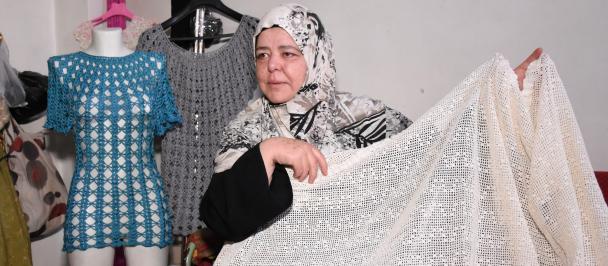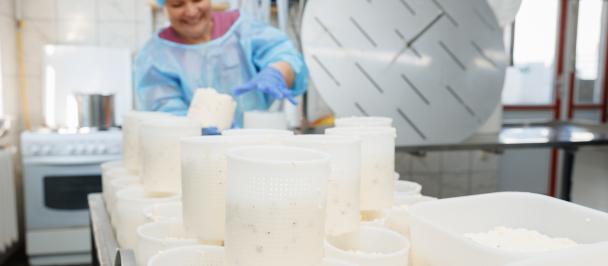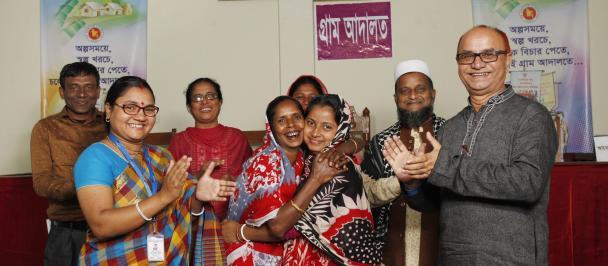Addressing stigma and discrimination – a step towards protecting women and girls with disabilities
June 30, 2022

UNDP Operations Manager, Niraj Shrestha handing over the conferencing equipment to NOLA's Office Manager, Mataafa Faatino Utumapu
The Addressing Stigma and Discrimination experienced by Women with Disabilities (ASDWD) Project is a joint United Nations Development Programme and UN Women project which seeks to address two key challenges in overcoming stigma and discrimination experienced by women and girls with disabilities, following an intersectional approach.
First, better tools are needed to generate evidence of disability-related stigma and discrimination and its impact at national level. Existing tools are fragmented, predominantly focused on the Global North, and do not measure the full chain of stigma, including gender based and intersectional stereotypes, prejudice and discrimination. Inspired by examples in other contexts, as part of this project, a tool will be developed which can be used to document stigma-related experiences of women and girls with disabilities, and piloted in several project countries, including Samoa.
Secondly, many interventions addressing disability-related stigma and discrimination have focused on raising awareness rather than changing behavior. The project will use behavioural insight approaches to design and pilot interventions that seek to reduce stigma and discrimination experienced by women and girls with disabilities in Samoa.
UNDP and UN Women are working with local partners, namely the Ministry of Women, Community and Social Development (MWCSD), and Nuanua o le Alofa (NOLA), as well as international research consultants to develop a new tool that will allow the assessment of the experiences of stigma (and discrimination) among women and girls with disabilities. The tool will include questions relating to discrimination at community level and in relation to, for example, access to resources and justice. Evidence generated using the tool will serve as a baseline and could be used in future to assess the impact of interventions that seek to reduce stigma and discrimination faced by women and girls with disabilities.
“We are committed to ensuring that no one is left behind, by continuing to support the most vulnerable in our communities, including women and girls with disabilities. This project reflects this commitment, and we endeavour to employ these tools to achieve the primary objective of this project, which is the protection and empowerment of women and girls with disabilities,” said UNDP’s Officer-In-Charge, Verena Linneweber.
Ongoing collaboration between local partners, UNDP, UN Women and the research consultants will ensure that the tool will be a good fit for the local context, not only in terms of contents and language but the methods of data collection as well. Local partners are engaged with women with disabilities to ensure their voices are central to the project. This includes consulting them from the outset during the development phase for the new tool.
To ensure the project benefits women with disabilities, particularly for NOLA in its advocacy activities, it has provided IT and conferencing equipment that are critical in strengthening NOLA’s communication capacity, as a key implementing partner for the project.
The equipment was handed over by UNDP’s Operations Manager, Niraj Shrestha, to NOLA’s Office Manager and prominent local advocate for the rights of people with disabilities, Mataafa Faatino Utumapu.
“Addressing stigma and discrimination amongst others against women and girls with disabilities remains at the centre of our advocacy work. Hence, as the lead advocacy organisation of persons with disabilities, we are confident that the equipment we received under this project will add more value to our many undertakings to achieve a Samoa which is inclusive and free from stigma and discrimination in all its forms,” said Mataafa Faatino Masunu Utumapu, General Manager, NOLA.

 Locations
Locations



